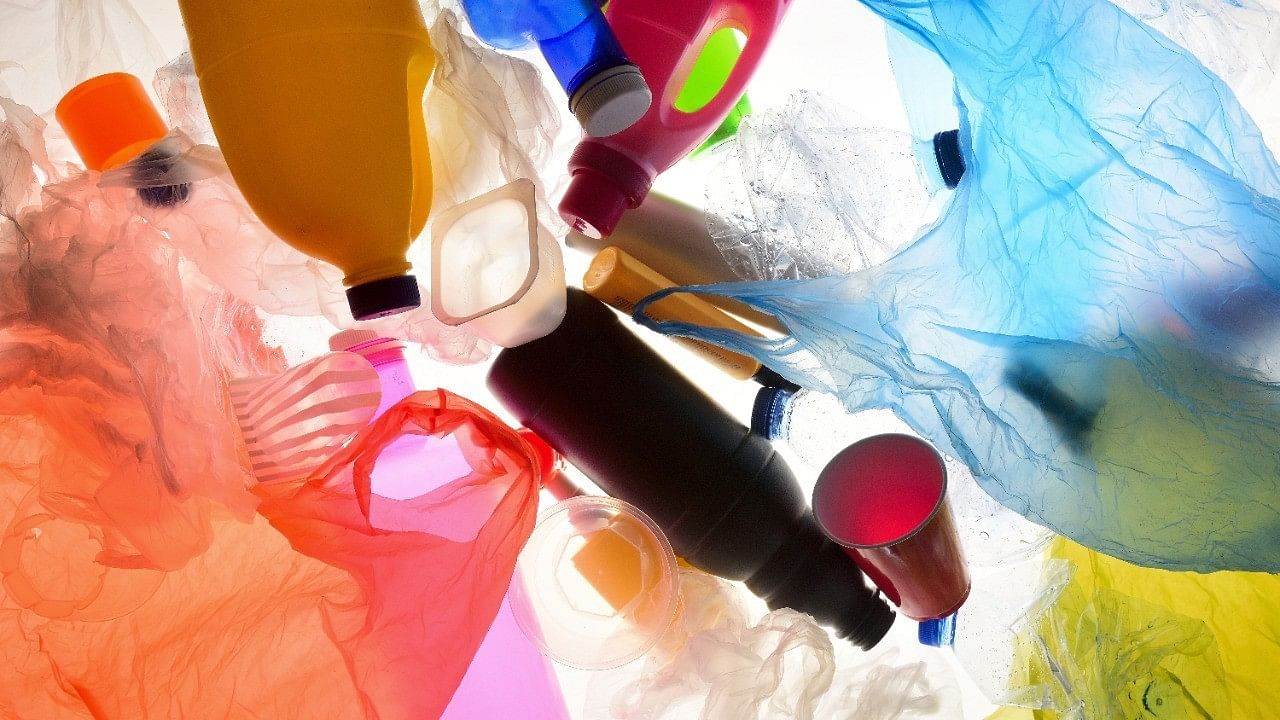
Representative image for plastic pollution.
Credit: iStock Photo
In 2022, representatives from United Nations member states endorsed a resolution to end plastic pollution and committed to working on a legally binding draft agreement by the end of 2024. According to the UN mandate, nations and corporations were to reduce plastic pollution by 80 per cent by 2040. The resolution targeted plastic production, design, and disposal, focussing on reusing and recycling plastics.
However, with ongoing wars in the Middle East, the Ukraine-Russia conflict, and civil unrest in other regions, discussions around a plastic ban seem to have lost urgency as the global tragedy of human loss, displacement, and destruction of property continues to unfold.
Still, it remains an important discussion. We must press forward with whatever progress the world has made towards mitigating climate change and ensure we do not fall behind. Plastics are harmful to both our health and the environment. Over 13,000 chemicals, many of them hazardous, go into the making of plastic products. Recent research has found alarming scientific evidence of microplastics, as tiny as grains of sand, accumulating in many organs of the human body, including the human brain. Plastic is in the sea, in the high mountainous clouds, in the air we breathe, in the water we drink, and in the food we eat.
According to earth.org, the world produces about 242 million tonnes of plastic every year. An UN Environment Programme (UNEP) report states that a shift to a circular economy would increase savings, avoid health issues, and create some 700,000 jobs by 2040. This can be done by eliminating “problematic and unnecessary plastics” through reuse, recycling, reorientation, and diversification. Yet, there would still be 100 million metric tonnes of plastics from single-use and short-lived products to be dealt with annually by 2040.
Meanwhile, several countries around the world have been proactive and already banned single-use plastic. The latest news comes from California, where just last month (September 2024), a bill was signed into law to ban checkout bags at grocery stores and retail outlets. This law will come into effect on January 1, 2026. As early as 2014, California had enacted a law that banned single-use plastic bags but allowed stores to offer consumers reusable bags, including paper and high-density polyethylene plastic bags, at a small fee. Media reports say that California generated over 150,000 tons of plastic bag waste in 2014, and by 2021, it had gone up to 230,000 tons. The new law will hopefully change this.
Nearer home, Bangladesh also banned polythene bags from supermarkets, which came into effect on October 1 this year, and alternatives such as jute, fabric, and paper bags were to be provided at these outlets.
In India, on July 1, 2022, a nationwide ban came into effect on the manufacture, import, stocking, distribution, sale, and use of identified single-use plastic items. More than 20 states, including Karnataka, had banned plastic use even before the nationwide ban came into effect.
In 2019, UNDP set up a plastic waste management programme, Prithvi, in collaboration with private companies in Bengaluru. This Swachhta Kendra (SK) managed by Hasiru Dala has provided several jobs and gets the plastic waste ready for recyclers, who then use these in agriculture, furniture making, and road building. It is estimated that India has built one lakh kilometres of roads in 11 states using discarded plastic. These roads can be constructed in all weather conditions and do not develop cracks and potholes after the monsoon or in heavy traffic areas in the cities. Plastic roads can last up to 15 years. In Bengaluru, the Outer Ring Road connecting the RMZ Ecospace in Bellandur is considered the first plastic road.
But despite all this work, there’s still a lot to be done. In Bengaluru alone, the plastic waste is 20 per cent of the total waste generated. Many
cities and towns in India do not have proper SWM or solid waste management systems, and plastic waste forms huge garbage piles on the wayside and ends up in the stomachs of stray animals or aquatic life.
UN resolutions can set the ball rolling, but implementation of these not only requires political will but also a proactive citizenry to work in tandem with the government and UN agencies to reduce plastic pollution and the health hazards it brings in its wake.